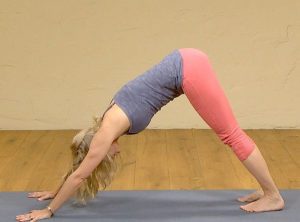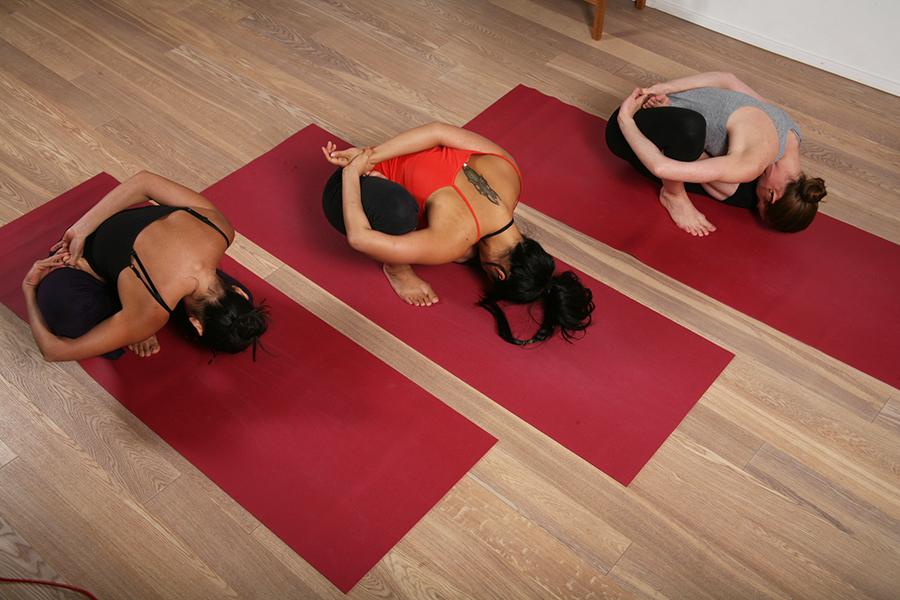
To do yoga with a chair, you must put a yoga mat over the seat of the chair. After the seat has been covered, you can sit down with your back against the bar and face forward. Both your legs should be bent, and both feet should touch the floor. When you are seated, raise your left foot to reach your right knee. Keep your knee bent. Your right leg should be lifted off the ground. Your right foot should be vertically aligned with your left heel pointed toward your left knee. Your body should be supported from all angles.
The chair allows you to work your spine and get better alignment. It supports your entire body from your tailbone to the top of your shoulders, making it possible to create a curve. It can support your upper weight making it ideal to those who are shorter or have mobility issues. With this chair, you can do the poses comfortably. The added benefit is that it is comfortable. If you don’t own a mat for yoga or don’t want it, you can use a seat to practice yoga at your home.

A chair can be used for yoga, so you can try many poses. Some people find this form of exercise very challenging, but it can be done by anyone. Even people with limited mobility can do yoga. The yoga chair can assist you in increasing your flexibility, strength, and balance during these sessions. The chair can be used to hold a variety yoga poses, including the shoulder stand and the backbend.
You must stand in front the chair to do the hip movement. The hip movement requires that your leg be extended forward and bent toward your chest. Next, grab onto the armrests of the chair or the side. Stretch your leg by lifting the leg up. You should release your leg with your fingertips. Ensure your foot is relaxed throughout the entire exercise. By doing this, you won't risk injuring your foot.
A chair makes it easy to do yoga. It can increase your flexibility, strength and balance. It will also improve your ability to sleep well and your overall health. Even though you don't have to use a yoga mat, you can still get the benefits of sitting in a chair. You can also do different poses while sitting in a chair. These positions can also easily be achieved in a wheelchair.

Chair yoga allows you to do many different poses. You can practice the Ardha Matsyendrasana, a chair spinal twist. First, place your back straight on the chair. Then raise your arms straight up so that your hands reach toward the sky. You will be able to balance by standing straight. Once you are comfortable, repeat this pose on the other side and then back. You can try other positions once you are comfortable with the position.
FAQ
How can I improve my mental health?
When we feel stressed out at work, home, school, or with our families, mental health is crucial for all of us. Regular exercise, healthy eating, quality sleep, and spending time with loved ones are the best ways to improve your mental well-being. Exercise releases endorphins which makes us feel happier. Our bodies also function better when we eat healthy foods. Being well rested gives you energy for the day. And finally, spending quality time with loved ones improves our relationships and reduces stress.
Is mental health more important than work?
Working is stressful and mental health is crucial. Try to find a way to unwind after work if you feel stressed.
If you find that you cannot relax, you should talk to your boss or supervisor. They may be able to suggest ways to relieve your stress.
It is also important to take care of your health. It's important to eat right, exercise regularly, take enough rest, and get plenty of sleep.
Why is it important to improve your emotional health?
Happiness and well-being are dependent on emotional health. You won't be able perform at your best if you aren't emotionally healthy. People with depression are often unable to work efficiently. You may also feel anxiety, panic attacks, insomnia and other symptoms. The good news about these conditions is that they can be successfully treated using medication and therapy.
What causes adolescents to have mental health problems?
Adolescence is when we develop our identities. We discover who and where we belong as individuals.
During this time, we also develop new friendships and romantic relationships. These experiences can lead to stress.
Normal stress is normal. However, if you feel stressed beyond your usual levels, you should seek professional help.
Although you might believe you are capable of handling things on your own, sometimes you need to talk to someone else.
Support can come from family and friends during stressful times. You may find them able to offer support and help you deal with stress.
For example, you could take up exercise or meditation. Both of these activities can help to reduce stress.
Additionally, you might consider joining a club such as a team sports or church. You'll meet new people and make new friends.
How does mental health affect our daily lives?
Everybody experiences mental illness at some time in their lives. The only difference between someone with mental illness, and those without, is the fact that they do not seek help. Talk to someone when you feel that something isn't right. There are many treatment options available for anxiety, depression and stress.
What can I do to prevent mental health problems?
Preventing mental health issues is easier said than done. But, here are some tips to keep in mind:
-
Don't drink alcohol. Alcohol can affect your moods and increase your risk of depression.
-
Avoid drugs. Avoid using drugs.
-
Sleep enough. Depriving yourself of sleep can lead to anxiety and depression.
-
Exercise regularly. Exercise releases endorphins in your body, which makes you happy.
-
Eat healthy foods. You can feel tired and unmotivated if you eat junk food.
-
Spend time with your loved ones. Spending time with people you love can make you feel happier.
-
Have fun. Have fun and explore new things.
-
Take breaks from social media. Social media sites can make people feel lonely and isolated.
-
Take care of yourself. Treat yourself nicely, even if you aren't feeling great.
-
Ask for help. Ask for help. Talking to a friend or family member can help.
-
Remember to be kind and gentle with yourself. It helps to release stress and tension. It does not necessarily mean that something is wrong.
-
Be busy. Do something that you love.
-
You should practice good hygiene. A lack of hygiene can make you look unattractive and unclean.
-
Keep in touch. Staying connected will help you stay positive.
-
Learn how to relax. You can relax by using relaxation techniques such as yoga or meditation to help you manage stress.
-
Find meaning in what your do. Finding meaning in your hobbies or work can help you feel fulfilled.
-
Be present in the moment. When you focus on the present moment, you won't worry so much about the future.
-
Set goals. It can be motivating to set goals.
-
Do something nice for you. It can increase self-esteem to do something nice for yourself.
-
Practice gratitude. Gratitude can help to appreciate all the blessings in your life.
-
Volunteer. Volunteering can provide a rewarding way to spend time with friends and make an impact on the world.
-
Give back. Giving back to others is a way to feel fulfilled.
-
Pay attention to warning signs. Do not hesitate to seek help if you notice changes in your behavior.
What is Positive Psychology, and Why is It Important?
Positive psychology emphasizes what makes us feel good about ourselves. This includes happiness, optimism, gratitude and hope. Positive psychology seeks to make individuals happier, healthier and more intelligent through self-improvement.
Two types of positive psychology exist: trait positive psychology (or process positive psychology). Trait positiv psychology examines the way people naturally behave. Process positive psychology studies how we can use certain strategies to achieve specific goals.
Statistics
- It does have some influence, but not nearly as much as we might think, so focusing less on attaining wealth will likely make you happier (Aknin, Norton, & Dunn, 2009); (positivepsychology.com)
- Neuropsychiatric diseases are the leading cause of death and disability in the U.S., accounting for 18.7 percent of all years of potential lifespan loss and premature mortality.
- More than 50% will be diagnosed with a mental illness or disorder at some point in their lifetime.3 (cdc.gov)
- Similarly, for positive mental health, there is likely to be substantial agreement about some typical components (e.g., resilience to stress) 6, and controversy about more atypical components (e.g., career consolidation). (ncbi.nlm.nih.gov)
- In any given year, an estimated 18.1% (43.6 million) of U.S. adults ages 18 years or older suffered from any mental illness, and 4.2% (9.8 million) (healthypeople.gov)
External Links
How To
How To Improve Your Memory
Memory is something that everyone would love to be able remember better. Unfortunately, memory impairment is something that all of us will experience at one time or another. In fact, more Americans than 65 years old suffer from dementia.
You have many options for improving your memory. Here are three simple steps you can try today:
-
Get more fruits and vegetables. Vegetables contain phytochemicals, vitamins, nutrients, fiber, antioxidants, and minerals that enhance brain function. They also have essential nutrients that protect against neurological disease.
-
Get enough sleep. Low sleep quality has been linked both to memory loss, poor concentration, and memory loss. Sleep well for seven to eight hours each night.
-
Take a Walk. Walking increases blood flow to the brain which can improve memory. Walking is good for your health and helps you look slimmer.